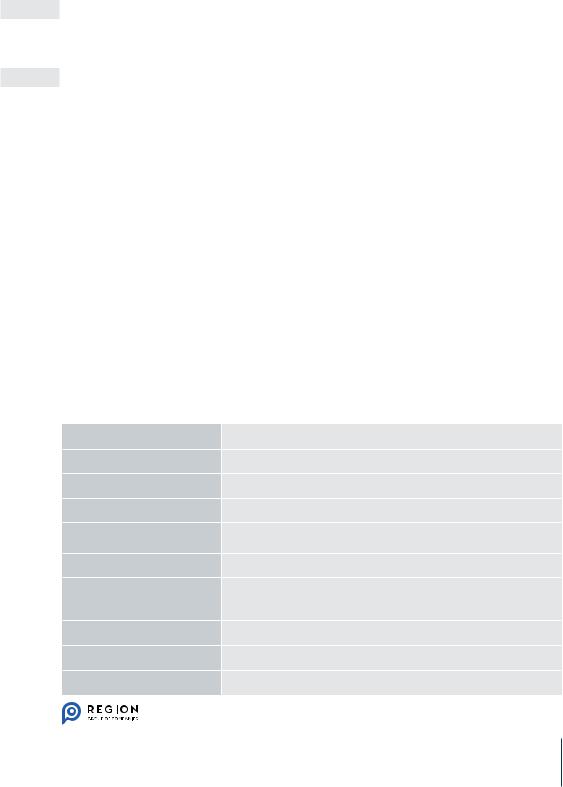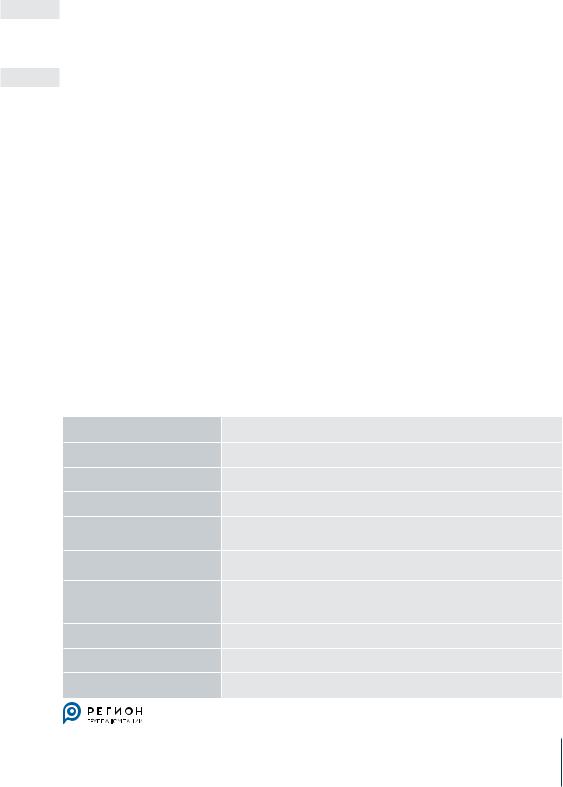
Том 1 №1
.pdf
ISSN 2686-9136 (Online)
DIGITAL LAW JOURNAL
Vol. 1, No. 1, 2020
EDITORIAL
8 Digital Law Journal: Introduction
Maxim Inozemtsev
ESSAYS
12 Digital transformation in economy and law
Max Gutbrod
ARTICLES
24 Transformation of law in the context of digitalization: Defining the correct priorities
Elina Sidorenko, Pierre von Arx
39 Digital challenges and tax equity
Igor Stepnov, Julia Kovalchuk
59The concept of FinTech Law in the context of modern requirements for the formation of lawyers’ professional competencies
Vladislav Ponamorenko

Digital Law Journal
Journal of research and practice
Published since 2020 4 issues per year
Vol. 1, No. 1, 2020
ЦифРовое право
Научно-практическийжурнал
Журнализдаетсяс2020 г. 4 выпускавгод
Том 1, №1, 2020

Digital Law Journal.Vol.1, No.1, 2020
Contents
Editorial
8 Digital Law Journal: Introduction
Maxim Inozemtsev
Essays
12 Digital transformation in economy and law
Max Gutbrod
Articles
24Transformation of law in the context of digitalization:
Definingthecorrectpriorities
Elina Sidorenko, Pierre von Arx
39 Digital challenges and tax equity
Igor Stepnov, Julia Kovalchuk
59The concept of FinTech Law in the context of modern requirements for the formation of lawyers’ professional competencies
Vladislav Ponamorenko
2

Цифровоеправо.Том1, №1, 2020
Содержание
От редакции
8 Цифровоеправо:предисловие
МаксимИноземцев
Эссе
12 Цифроваятрансформациявэкономикеиправе
Макс Гутброд
Статьи
24Трансформацияправавконтекстецифровизации: впоискеприоритетов
ЭлинаСидоренко,ПьерфонАркс
39 Цифровыевызовыисправедливостьналогов
ИгорьСтепнов,ЮлияКовальчук
59КонцептFinTechLawвконтекстесовременныхтребований кформированиюпрофессиональныхкомпетенцийюристов
ВладиславПонаморенко
3

DIGITAL LAW JOURNAL
Aims and Scope
The purpose of the Digital Law Journal is to provide a theoretical understanding of the laws that arise in Law and Economics in the digital environment, as well as to create a platform for finding the most suitable version of their legal regulation. This aimisespeciallyvitalfortheRussianlegalcommunity,followingthedevelopmentofthedigitaleconomyinourcountry.The rest of the world has faced the same challenge, more or less successfully; an extensive practice of digital economy regulation has been developed, which provides good material for conducting comparative research on this issue. Theoretically, “Digital Law” is based on “Internet Law”, formed in English-language scientific literature, which a number of researchers consider as aseparatebranchofLaw.
The journal establishes the following objectives:
■■ Publicationofresearchinthefieldofdigitallawanddigitaleconomyinordertointensifyinternationalscientificinteractionandcooperationwithinthescientificcommunityofexperts.
■■ Meeting the information needs of professional specialists, government officials, representatives of public associations, and other citizens and organizations; this concerns assessment (scientific and legal) of modern approaches to the legal regulationofthedigitaleconomy.
■■ Dissemination of the achievements of current legal and economic science, and the improvement of professional relationships and scientific cooperative interaction between researchers and research groups in both Russia and foreign countries.
The journal publishes articles in the following fields of developments and challenges facing legal regulation of the digital economy:
1.Legal provision of information security and the formation of a unified digital environment of trust (identification of subjectsinthedigitalspace,legallysignificantinformationexchange,etc.).
2.Regulatory support for electronic civil turnover; comprehensive legal research of data in the context of digital technology development,includingpersonaldata,publicdata,and“BigData”.
3.Legalsupportfordatacollection,storage,andprocessing.
4.Regulatory support for the introduction and use of innovative technologies in the financial market (cryptocurrencies, blockchain,etc.).
5.Regulatory incentives for the improvement of the digital economy; legal regulation of contractual relations arising in con- nectionwiththedevelopmentofdigitaltechnologies;networkcontracts(smartcontracts);legalregulationofE-Commerce.
6.Theformationoflegalconditionsinthefieldoflegalproceedingsandnotariesaccordingtothedevelopmentofthedigital economy.
7.Legal provision of digital interaction between the private sector and the state; a definition of the “digital objects” of taxationandlegalregimedevelopmentforthetaxationofbusinessactivitiesinthefieldofdigitaltechnologies;adigital budget; a comprehensive study of the legal conditions for using the results of intellectual activity in the digital economy; anddigitaleconomyandantitrustregulation.
8.Legalregulationofthedigitaleconomyinthecontextofintegrationprocesses.
9.Comprehensive research of legal and ethical aspects related to the development and application of artificial intelligence androboticssystems.
10.Changing approaches to training and retraining of legal personnel in the context of digital technology development; new requirementsfortheskillsoflawyers.
The subject of the journal corresponds to the group of specialties Legal Sciences 12.00.00 and Economic Sciences 08.00.00 accordingtotheHACnomenclature.
ThejournalpublishesarticlesinRussianandEnglish.
Founder, Publisher:
MaximI.Inozemtsev
76,ave.Vernadsky,Moscow,119454, Russia
4

Editor-in-Chief:
Maxim Inozemtsev, Ph.D. in Law, Associate Professor, Department of Private International and Civil Law, Head of Dissertation Council Department of MGIMO-University, inozemtsev@digitallawjournal.org
76, ave. Vernadsky, Moscow, 119454, Russia
Editorial Board
Marina Fedotova — Dr. Sci. in Economics, Head of the
Department of Corporate Finance and Corporate Governance,
Financial University under the Government of the Russian
Federation, Moscow, Russia
Nikolaus Forgó — Dr. jur., Head of the Department of Innovation and Digitalisation in Law, University of Vienna, Vienna,
Austria
Alice Guerra —Ph.D.inLawandEconomics,AssociateProfessor, DepartmentofEconomics,UniversityofBologna,Bologna,Italy
Max Gutbrod — Dr. jur., Partner of the Moscow office of the internationallawfirmBakerMcKenzie,Moscow,Russia
Steffen Hindelang — Ph.D. in Law, Department of Law, University of Southern Denmark (University of Siddan), Odense, Denmark
JuliaКovalchuk — Dr. Sci. in Economics, Professor of the Department of Energy Service and Energy Supply Management, Moscow Aviation Institute, Moscow, Russia
Natalia Kozlova — Dr. Sci. in Law, Professor, Professor of the Department of Civil Law, Moscow State University Lomonosov, Moscow, Russia
Danijela Lalić — Ph.D. in Technical Sciences, Associate Professor, Faculty of Industrial Engineering and Management,
NoviSadUniversity,NoviSad,Serbia
LyudmilaNovoselova—Dr.Sci.inLaw,Professor,Headofthe DepartmentofIntellectualRights,KutafinMoscowStateLaw University(MSAL),Moscow,Russia
Vladimir Osipov — Dr. Sci. in Economics, Ph.D. in Economics,
Associate Professor, Professor of the Asset Management Department, Moscow State Institute of International
Relations(MGIMO),Moscow,Russia
Francesco Parisi — Ph.D. in Law, Professor, Department of Law,UniversityofMinnesota,Minneapolis,theUSA
Vladimir Plotnikov — Dr. Sci. in Economics, Professor, St. Petersburg State University of Economics, St. Petersburg,
Russia
Bo Qin — Ph.D., Professor, Head of the Department of urban planning and management, Renmin University of China, Beijing,China
Sergey Ryazantsev — Dr. Sci. in Economics, Corresponding
Member of the Russian Academy of Sciences, Russian Academy of Sciences, Moscow, Russia
Elina Sidorenko —Dr.Sci.inLaw,ProfessoroftheDepartment of Criminal Law, Criminal Procedure and Criminalistics, Director of the Center for Digital Economics and Financial Innovations, Moscow State Institute of International
Relations(MGIMO),Moscow,Russia
Founded: |
|
The journal has been published since 2020 |
Frequency: |
|
4 issues per year |
DOIPrefix: |
|
10.38044 |
ISSN online: |
|
2686-9136 |
Mass Media Registration |
ЭЛ№ФС77-76948 of 9 Oct.2019 (Roskomnadzor) |
|
Certificate: |
|
|
|
|
|
Distribution: |
|
Content is distributed under Creative Commons Attribution 4.0 License |
EditorialOffice: |
|
76,ave.Vernadsky,Moscow,119454, Russia, +7 (495)229-41-78, |
|
digitallawjornal.org, |
|
|
|
dlj@digitallawjournal.org |
Publishedonline: |
|
20 Apr.2020 |
Copyright: |
|
© Digital Law Journal, 2020 |
Price: |
|
Free |
|
With support of REGION Group of Companies |
|
5

Цифровоеправо
Цели и задачи
Цель электронногожурнала «Цифровое право» (Digital Law Journal) — создание дискуссионной площадки для осмыс- лениявнаучно-практическойплоскостилегализациицифровыхтехнологий,особенностейиперспективихвнедрения
в нормативно-правовое поле. Особенно остро эта задача стоит перед российским сообществом правоведов в связи
сразвитием цифровой экономики в нашей стране. С этойже задачей сталкивается и остальноймир, решая еёболее или менее успешно. В мире сформировалась обширная практика нормативного регулирования цифровой экономики, онадаётхорошийматериалдляпроведениясравнительныхисследованийпоэтойпроблематике.Втеоретическомплане«цифровоеправо»опираетсянасформировавшеесяванглоязычнойнаучнойлитературеакадемическоенаправле- ние«интернет-право»,которое рядисследователей рассматриваюткакотдельнуюотрасльправа.
Задачами журнала являются:
■■ Публикация исследований в области цифрового права и цифровой экономики с целью интенсификациимеждународногонаучноговзаимодействияисотрудничестваврамкахнаучногосообществаэкспертов.
■■ Удовлетворение информационных потребностей специалистов-профессионалов, должностных лиц органов государственной власти, представителей общественных объединений, иных граждан и организаций в научно-право- войоценкесовременныхподходовкправовомурегулированиюцифровойэкономики.
■■ Распространение достижений актуальной юридической и экономическоймысли, развитие профессиональных связей и научного кооперативного взаимодействиямежду исследователями и исследовательскими группами Россииизарубежных государств.
В журнале публикуются статьи по следующим направлениям развития и задачам, стоящим перед нормативным регулированиемцифровойэкономики:
1.Нормативное обеспечение информационнойбезопасности, формирование единой цифровой среды доверия (идентификациясубъектоввцифровомпространстве,обменюридическизначимойинформациеймеждунимиит.д.).
2.Нормативное обеспечение электронного гражданского оборота; комплексные правовые исследования оборота данных в условиях развития цифровыхтехнологий, в том числе персональных данных, общедоступных данных,
“BigData”.
3.Нормативноеобеспечениеусловийдлясбора,храненияиобработкиданных.
4.Нормативное обеспечение внедрения и использования инновационныхтехнологий на финансовом рынке (криптовалюты,блокчейнидр.).
5.Нормативное стимулирование развития цифровой экономики; правовое регулирование договорных отношений, возникающих в связи с развитием цифровыхтехнологий. Сетевые договоры (смарт-контракты). Правовое регулированиеэлектроннойторговли.
6.Формированиеправовыхусловийвсфересудопроизводстваинотариатавсвязисразвитиемцифровойэкономики.
7.Обеспечение нормативного регулирования цифрового взаимодействия предпринимательского сообщества и государства; определение «цифровых объектов» налогов и разработка правового режима налогообложения предпринимательской деятельности в сфере цифровыхтехнологий. Цифровойбюджет; комплексное исследование правовых условий использования результатов интеллектуальной деятельности в условиях цифровой экономики. Цифроваяэкономикаиантимонопольноерегулирование.
8.Нормативноерегулированиецифровойэкономикойвконтекстеинтеграционныхпроцессов.
9.Комплексныеисследованияправовыхиэтическихаспектов,связанныхсразработкойиприменениемсистемискусственногоинтеллектаиробототехники.
10.Изменение подходов к подготовке и переподготовке юридических кадров в условиях развития цифровыхтехноло-
гий.Новыетребованиякнавыкамиквалификацииюристов.
Тематикажурнала соответствует группе специальностей Юридические науки 12.00.00 и Экономические науки 08.00.00 пономенклатуреВАК.
Вжурналепубликуютсястатьинарусскомианглийскомязыках.
Учредитель, ИЗДАТЕЛЬ:
ИноземцевМаксимИгоревич 119454,Москва,просп.Вернадского,76,Россия
6

ГЛАВНЫЙ РЕДАКТОР:
Максим Иноземцев, кандидат юридических наук, доцент кафедрымеждународного частного и гражданского права им.С. Н.Лебедева,начальникотделадиссертационныхсоветовМГИМОМИД России,inozemtsev@digitallawjournal.org
119454,Москва,просп.Вернадского,76,Россия
Редакционная коллегия
Алиса Герра — Ph.D. in Law and Economics, доцент фа- |
Владимир Плотников — доктор экономических наук, |
культета экономики, Болонский университет, Болонья, |
профессор, профессор кафедры общей экономиче- |
Италия |
скойт еории и истории экономическойм ысли, Санкт- |
Макс Гутброд — Dr. jur., партнермосковского офисамеж- |
Петербургский государственный экономический универ- |
дународнойюридическойфирмыBakerMcKenzie,Москва, |
ситет,Санкт-Петербург,Россия |
Россия |
Сергей Рязанцев — доктор экономических наук, член-кор- |
Юлия Ковальчук — доктор экономических наук, про- |
респондент РАН,Российскаяакадемиянаук,Москва,Россия |
фессор, профессор кафедры энергетического сервиса |
ЭлинаСидоренко—докторюридическихнаук,доцент,профес- |
и управления энергоснабжением, Московский авиацион- |
сор кафедры уголовного права, уголовного процессаикрими- |
ныйинститут,Москва,Россия |
налистики, директор Центра цифровой экономикиифинансо- |
Наталия Козлова — доктор юридических наук, профес- |
выхинноваций,МГИМОМИД России,Москва,Россия |
сор, профессор кафедры гражданского права, МГУ име- |
Марина Федотова — доктор экономических наук, про- |
ниМ.В.Ломоносова,Москва,Россия |
фессор, руководитель департамента корпоративных |
Даниела Лалич — Ph.D. in Technical Sciences, доцент фа- |
финансов и корпоративного управления, Финансовый |
культета промышленной инженерии и менеджмента, Но- |
университет при Правительстве Российской Федерации, |
ви-Садскийуниверситет,Нови-Сад,Сербия |
Москва,Россия |
Людмила Новоселова — доктор юридических наук, профессор, заведующий кафедрой интеллектуальных прав, Московский государственный юридический университет имениО.Е.Кутафина(МГЮА),Москва,Россия
Владимир Осипов — доктор экономических наук, Ph.D. in Economics, профессор кафедры управления рисками истрахования,МГИМОМИД России,Москва,Россия
ФранческоПаризи — Ph.D. in Law, профессор факультета права,Миннесотскийуниверситет,Миннеаполис,США
НиколаусФорго—Dr.jur.,заведующийкафедройиннова- ций и цифровизации в праве, Венский университет, Вена, Австрия
Штеффен Хинделанг — Ph.D. in Law, факультет права, Университет Южной Дании (Сидданский университет), Оденсе,Дания
Бо Цинь — Ph.D., профессор, заведующий кафедройгородскогопланированияиуправления,Университет Жэньминь,Пекин,Китай
Историяизданияжурнала: |
Журнализдаетсяс2020 г. |
|
Периодичность: |
4 выпускавгод |
|
ПрефиксDOI: |
10.38044 |
|
ISSN online: |
2686-9136 |
|
Свидетельствоорегистрации |
№ФС77-76948 от09.10.2019 (Роскомнадзор) |
|
средствамассовойинформации: |
||
Условияраспространения |
КонтентдоступенподлицензиейCreativeCommonsAttribution4.0 License |
|
материалов: |
||
|
||
Редакция: |
119454,Москва,просп.Вернадского,76,Россия,+7(495)229-41-78, |
|
digitallawjournal.org, |
||
|
dlj@digitallawjournal.org |
|
Датапубликации: |
20.04.2020 |
|
Копирайт: |
©Цифровоеправо,2020 |
|
Цена: |
Свободная |
ПриподдержкеГруппыкомпаний«РЕГИОН»
7

Digital Law Journal. Vol. 1, No. 1, 2020, p. 8–11
Maxim I. Inozemtsev / Digital Law Journal: Introduction
https://doi.org/10.38044/DLJ-2020-1-1-8-11 |
|
4.0 |
|
|
|
Editorial
Dear Readers,
I am glad to greet you in the pages of the international, peer-reviewed Digital Law Journal. The mission of the Journal is to provide a platform to exchange and discuss information around various research aspects and best practices concerned with the legalization of digital technologies. Another fundamental goal is to elucidate the peculiarities of these technologies and their implementation prospects within a legal and regulatory framework.
At present, attempts to use digital technologies in socioeconomic and production processes pose two major problems. The first is updating the existing legal provisions; the second relatestothetransformationofthelegalsysteminordertoaddressthedigitalchallengesofourtime.
Several countries have already begun to shape their approaches to the legalization of digital assets, althoughtheirattitudestotheissuearerathercontradictory.Thecomparativelyrecentincorporationofdigital technologies into the legal sphere, alongside their novelty and originality, is combined with a lack of legal controlofsuchrelationsinmanyjurisdictions.
It is important to note that Russia is ranked second among the world’s cryptocurrency traders1. Figures for January 2020 show that, according to the approval rating of cryptocurrencies as an investment vehicle, Russia is one of the top 5 countries2.InthemostpopularP2Pbitcoinmarketplace,LocalBitcoins.com,Russia is also leading in the trading volume3.However,basedonBloomChainresearch4,Russiaranks40thamong63 players in the FinTech market, and falls behind other countries as far as the factors of ‘legal and regulatory framework’, ‘technologies’, and being ‘future ready’ are concerned. Consequently, Russia is one of the most promisingeconomies,whilstatthesametimeisbehindmany‘digital’jurisdictionsindoctrineandregulation. It is my firm belief that the Digital Law Journal can facilitate the legalization of digital technologies on both the national and international levels. This quarterly aims to become an environment for research, expert analysis,andeducation,regardingtheevolutionandestablishmentofdigitallawanddigitaleconomy.
Lawmaking in the field of digital economy in our country is developing rapidly. The category of ‘digital rights’ in Russian law is legalized by Federal Act № 34-FZ5; the biometric identification act6 and the crowdfund act7 are also applied, whilst the legislation of digital financial assets is pending8. Additionally,
1Forklog. (2018, December 5). Issledovaniye: Rossiya zanyala vtoroye mesto v mire po kolichestvu kriptovalyutnykh treyderov [Research: Russia ranked second in the world in the number of cryptocurrency traders]. https://forklog.com/issledo- vanie-rossiya-zanyala-vtoroe-mesto-v-mire-po-kolichestvu-kriptovalyutnyh-trejderov/
2Zyl’,A.(2020,March18).Luchshiyebirzhikriptovalyutv2020 godu [The best cryptocurrency exchanges in 2020].Cryptonisation. https://cryptonisation.ru/obzor-birzh-kriptovaljut-2018/
3MyCrypter. (2020). Rossiya lidiruyet po ob”yemu torgov na LocalBitcoins [Russia leads in trading volume on LocalBitcoins]. https://mycrypter.com/rossiya-lidiruyet-po-obyemu-torgov-na-localbitcoins/
4Solodkov,A.(2018, December 29).Rossijskijfintekhv2018 godu:issledovaniyeBloomchain[RussianFintechin2018:Bloomchain research]. Bloomchain. https://bloomchain.ru/detailed/rossijskij-finteh-v-2018-godu-issledovanie-bloomchain
5Federal Law 34-FZ,dated18 Mar.2019,‘OnintroducingamendmentstoParts1, 2 andArticle1124 of Part 3 of the Russian Civil Code’
6Federal Law 482-FZ,dated31Dec.2017,‘OnintroducingamendmentstocertainlegislativeactsoftheRussianFederation’.
7Federal Law 259-FZ, dated 2 Aug. 2019, ‘On raising capital using investment platforms and on introducing amendments to certainlegislativeactsoftheRussianFederation’.
8Law project No 419059-7‘OnDigitalFinancialAssets’.
8

Цифровоеправо.Том1, №1, 2020, с.8–11 М. И.Иноземцев/Цифровоеправо:предисловие
the national programme ‘Digital Economy of the Russian Federation’ is already in force9, and the Bank of Russiaisimplementingtheproposalsoutlinedinthepolicypaper‘BasicDirectionsofFinancialTechnologies Developmentfortheperiod2018-2020’10.
The Bank of Russia has launched some FinTech projects: a regulatory sandbox, a financial service marketplace, a coin marketplace for banks, a faster payment system, remote identification and biometrics in banks.TheFinTechAssociationimplementstheprojectsofdigitalKYC,electroniclettersofcredit,anddigital mortgages11. The FinTech, RegTech/SupTech, and GovTech markets in Russia are developing with the aid of dynamicstart-ups;theyaregiveninfrastructuresupportbytheFinTechAssociation,theRussianAssociation ofCryptoindustryandBlockchain(RACIB),theSkolkovoFoundation,andothers.
Russia is one of the leaders in implementing the digital agenda of the Eurasian Economic Union. In this regard, the Eurasian Economic Commission (EEC) and the Eurasian Development Bank (EDB) released a joint report on cryptocurrency and blockchain issues12. The Russian Federation is also actively involved in the discussionofdigitalproblemsassociatedwiththeeconomicsecurityoftheEurasianregion.
Inthefieldofthelegalregulationofdigitaleconomy,asingularschoolofthoughtisjustbeginningtoevolve. Nevertheless, there are centres for digital economy competencies in the Russian academic environment. It is worthmentioningsuchbodiesastheCentreforDigitalEconomyandFinancialInnovationatMGIMOUniversity runbytheRussianMinistryofForeignAffairs;theDigitalEconomicsCentreoftheNationalResearchUniversity’s Higher School of Economics; the Centre for Training Chief Digital Transformation Officers at the Russian Presidential Academy of National Economy and Public Administration; the National Centre for Digital Economy at LomonosovMoscowStateUniversity;theRussianSchoolofPrivateLaw;theBlockchainAcademyInc.;andothers.
Marketplayersalsohaveexpertgroups(thinktanks)whichplayakeyroleincreatingthisRussianschool of thought; these include the Competence Centre for Normative Regulation in the Digital Economy at the
SkolkovoFoundation;Vnesheconombank’sCentreforBlockchainCompetenciesandDigitalization;theRobo- lawResearchCenterforProblemsofRoboticsandArtificialIntelligenceRegulation;theRussianE-moneyAs- sociation;theNationalCouncilofFinancialMarket;andothers.Thebestpracticesofmanagementconsulting companies(forinstance,Baker,McKenzie,Delloite,Dentons,PWC)makeasignificantcontributiontothelegal elementofthedigitalcompetenceframework.
IamconfidentthattheDigitalLawJournalwillfacilitatethegrowthofaremarkableintellectualtraditioninthe fieldoflegalsupportofdigitaleconomydevelopment.Toachievethisaim,theJournalisconsolidatingtheeffortsof the abovementioned actors and leading centres abroad (the American Chamber of Digital Commerce, the American
BarAssociation,theCambridgeCentreforAlternativeFinance,theAmericanGlobalLegalResearchCenter).
I would like to express sincere gratitude to the members of the Editorial Board for joining our internationalresearchproject.
MaximI.Inozemtsev
Moscow State Institute of International Relations (MGIMO), Moscow, Russia, March 2020
9Thepassportofthenationalproject‘DigitalEconomyofTheRussianFederation’(approvedbythePresidiumofthePresidential
Council for Strategic Development and National Projects, Minutes No 7, dated 4 Jun.2019). URL:http://www.consultant.ru/document/cons_doc_LAW_328854/
10
11
12
Bank of Russia. (2018). Osnovnyye napravleniya razvitiya finansovykh tekhnologiy na period 2018 – 2020 godov [The main directions of development of financial technologies for the period 2018 – 2020]. http://www.cbr.ru/Content/Document/ File/85540/ON_FinTex_2017.pdf
AssotsiatsiyaFintekh[FintechAssociation].https://www.fintechru.org/
Eurasian Economic Commission. (2019). Kriptovalyuty i blokcheyn kak atributy novoy ekonomiki. Razrabotka regulyatornykh podkhodov: mezhdunarodnyy opyt, praktika gosudarstv – chlenov YEAES, perspektivy dlya primeneniya v Yevraziyskom ekonomicheskom soyuze [Cryptocurrencies and blockchain as attributes of the new economy. Development of regulatory approaches: international experience, practice of the EAEU member states, prospects for application in the Eurasian Economic Union].http://www.eurasiancommission.org/ru/act/integr_i_makroec/dep_makroec_pol/SiteAssets/Доклад_FINAL.pdf
9
